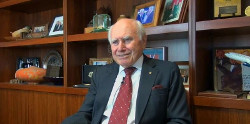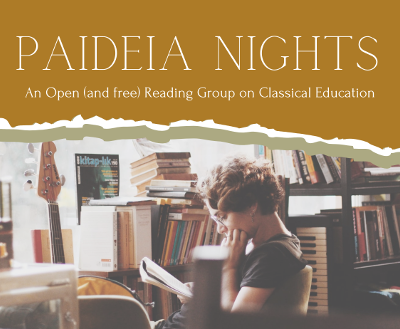In Love What Lasts: How to Save Your Soul From Mediocrity, Joshua Gibbs successfully transplants his perceptive, witty, and soulful reflections into the wider realm of cultural observation beyond the familiar territory of his previous books based squarely in the world of classical education.
In short, the book covers the importance of the classical, in art, architecture, literature, music and film – but this book is not primarily a walk through Gibbs' favourite pieces of classical art though they feature throughout. Rather Gibbs walks us through why this love for what lasts had such a past importance to the West, how our loss of this love occurred across history, the modern replacement of this love with an infatuation for the mediocre, and the consequences of this usurpation by the ‘cult of ugliness’. Even though Gibbs casts an eye beyond the classroom in Love What Lasts, those working in schools and running their own homeschools will find relevance across the topics covered in his championing of the classical. As an English secondary teacher myself I found the book to be highly relatable and full of useful meditations for teachers, parents, and students.
This book carries, I believe, a certain glamour gained from an exposure to the wisdom of the ancients celebrated within its pages. In both style and subject matter Love What Lasts would not be out of place next to the apologetics of Chesterton and Lewis in its central argument for art’s spiritual power. Gibbs' traditionalism is refreshing. Sitting in the camp of de Maistre and Gómez Dávila in its esoteric and philosophical discussion, the book is set apart from the tired kvetching which often characterises US cultural conservatism. With the double-edged blade that is the increasing popularity of classical education, I predict this vital traditionalism will be increasingly important to maintaining the essence of the classical educational renewal. As such Love What Lasts does well not to merely look back to the last century with utopian notes but further back to what Gibbs presents as the roots of our infatuation with the ephemeral in the liberal compromise between Protestants and Catholics that became a modern idol, then tracing further developments through the manifestations of Enlightenment ideals particularly in the French Revolution.
Throughout this genealogy of ideas, Gibbs does not stray far from the collection of present and perennial challenges we are now facing and does so with his characteristic conversational style. Weaving in his entertaining anecdotes and mulled-over experiences, Gibbs takes a different path than the theologically dense works on beauty by writers such as Stratford Caldecott - but whom Gibbs is nonetheless united with in a common aim. There were a few times where I found the conversational style meandering into tangents where further development of the central topic would have perhaps served better. This was apparent where longevity is equated to divinity with little qualification - that is, until the last chapter on the caveats to the book’s thesis. In this I take no issue with what is written but rather the order of what is written, which in this instance could lead to misunderstanding especially amongst the uninitiated.
Despite this, Gibbs is truly a great initiator into the milieu of classical education, as he was for me and for other teachers who I have introduced to Gibbs’ work. Gibbs could not have written this pathos-infused book without truly meaning what he has written and living it out. Between the lines one can hear the wrestling discussions he has with his students, their parents, the thoughts he has sat with afterwards, the silence of the classroom after the bell. Gibbs should be commended in speaking out not just against progressives who are tearing down the classics and promoting mediocrity but also those conservatives and indeed Christians who have fallen into complacency with the world by attempting to redeem mediocre art, in what is really an excuse for acts of indulgence with Christian garnish.
To use a term somewhat maligned in the book, Gibbs’ strength as a writer does indeed come from having ‘a finger on the cultural pulse’ in a somewhat Chestertonian paradox. He truly understands the plight of modern man in picking up Dante’s Commedia in a culture that constantly beckons with art that panders, appeases, and titillates. In another Chestertonian aspect of the book, Gibbs plays with everyday language and concepts to create accessible analogies. For example through his demonstration of the complementarity of common and uncommon goods, against the abomination of mediocre art which is neither a common or uncommon good and prevents us from accessing them. Or in his pitting of the holy against its tawdry modern replacement, the special, in which he explores nature and supernature in a humorous and memorable manner. These touchstones are some of my favourite parts of Gibbs’ thought, and feature in his previous work such as in the contrasting of the arbitrary and the surprising.
As with his previous work in Something They Will Not Forget and How To Be Unlucky, Gibbs’ book has been published by the CiRCE Institute. As such, I would highly recommend this book to those Australian parents and educators who enjoyed the wisdom shared by Andrew Kern and Katerina Hamilton from CiRCE who visited Australia last year. It is yet to be seen what degree this book possesses in uncommon goodness itself. However, no matter where it stands in the stratum between common and uncommon goodness, I can with confidence say this book is not mediocre - it is good! I can also say with confidence that in its readers' hands it will be a shield in defense of the uncommon good, which is why I have a good feeling about its own longevity.






